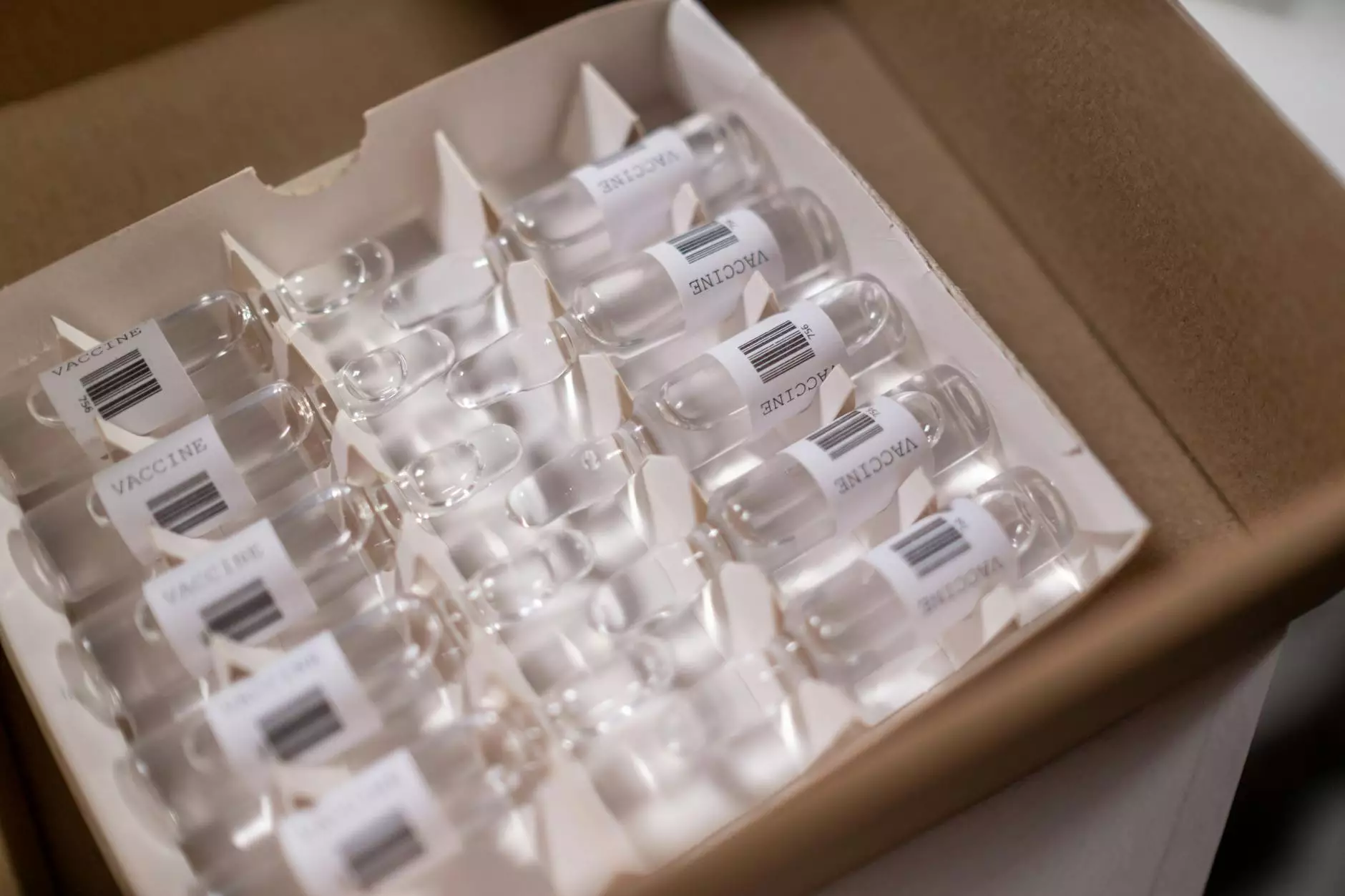Enhancing Healthcare Efficiency with Mobile Central Sterilization Units

In the rapidly evolving landscape of healthcare, delivering timely, safe, and efficient medical services is paramount. The advent of mobile central sterilization units has revolutionized how medical centers and healthcare providers manage sterilization processes, ensuring heightened patient safety, operational flexibility, and overall improved healthcare quality. This comprehensive article explores the significance, advantages, technological features, and implementation strategies of mobile central sterilization units, illustrating why they are becoming indispensable in modern healthcare infrastructure.
What is a Mobile Central Sterilization Unit? An In-Depth Overview
A mobile central sterilization unit is a state-of-the-art, transportable sterilization system designed specifically for healthcare settings. Unlike traditional fixed sterilization rooms, these units are equipped with advanced sterilization technology mounted on mobile platforms, such as trucks, vans, or trailers, enabling healthcare facilities to perform sterilization directly on-site or in remote locations.
These units are engineered with high-performance sterilizers, integrated ventilation systems, autoclaving technology, and digital monitoring tools—all housed within a compact, durable structure. Their mobility allows healthcare providers to extend sterilization services beyond static healthcare facilities, reaching underserved or remote areas, emergency response zones, and mobile clinics.
Key Features and Components of a Mobile Central Sterilization Unit
- Advanced Autoclave Technology: High-capacity, fast-cycle sterilizers capable of handling a variety of medical instruments.
- Robust Mobility Platform: Built on rugged, easily transportable chassis with stabilizing mechanisms for safe operation during transit and on uneven terrains.
- Integrated Monitoring Systems: Real-time data analytics, temperature, pressure sensors, and sterilization cycle logs to ensure process compliance and traceability.
- Power Supply and Backup: Equipped with generators, batteries, or connection to hospital power systems to ensure uninterrupted operation.
- Decontamination and Ventilation: Specialized systems to handle hazardous biological waste and maintain indoor air quality.
- User-Friendly Interface: Touchscreen controls and remote operation capabilities for ease of use by trained personnel.
- Compliance and Safety Protocols: Designed to meet international sterilization standards (e.g., CDC, WHO, ISO), ensuring safety and reliability.
The Importance of Mobile Central Sterilization Units in Modern Healthcare
As medical technology advances and healthcare demands increase, the traditional approach of having fixed sterilization rooms is no longer sufficient to meet the dynamic needs of diverse medical environments. The application of mobile central sterilization units addresses these challenges by offering unparalleled flexibility, speed, and scalability.
Enhancing Patient Safety and Infection Control
Unquestionably, sterilization is fundamental to infection control and patient safety. Mobile sterilization units enable immediate processing of instruments at the point of care, sharply reducing delays and risks associated with transportation and centralized sterilization delays. Such proximity minimizes the risk of cross-contamination and guarantees that the highest sterilization standards are consistently maintained.
Operational Flexibility and Rapid Deployment
Healthcare facilities, especially during emergencies, need adaptable solutions to expand capacity quickly. Mobile central sterilization units facilitate rapid deployment during outbreaks, disaster responses, or in disaster-stricken or remote zones where permanent infrastructure may not exist or be compromised. This flexibility ensures that medical teams can continue to deliver safe surgical and procedural care without interruption.
Cost-Effective and Resource-Efficient
Investing in a mobile sterilization unit streamlines resource allocation, reducing the need for constructing new sterilization facilities, which can be costly and time-consuming. Additionally, these units can be shared across multiple sites, optimizing operational costs and resource utilization while maintaining compliance with healthcare standards.
Technological Innovations Driving Mobile Central Sterilization Units
The evolution of medical sterilization technology underpinning these units has been driven by innovations in safety, efficiency, and automation:
- Smart Sterilizers: Incorporate IoT-connected sensors and controls that allow remote monitoring, diagnostics, and maintenance scheduling.
- Rapid Cycles: Advanced sterilization cycles shortened to increase throughput without compromising standards.
- Autonomous Operation: Integration of AI-driven algorithms to optimize cycle parameters and anticipate maintenance needs.
- Eco-Friendly Solutions: Use of eco-friendly sterilants and energy-efficient systems reducing environmental impact.
- Enhanced Safety Features: Automated fail-safes, biological indicator monitoring, and alarms ensure process validation and safety.
Implementation Challenges and Solutions for Mobile Central Sterilization Units
While these units offer numerous benefits, their integration into healthcare workflows does involve certain challenges:
- Regulatory Compliance: Ensuring units meet local and international standards requires collaboration with authorities and adherence to strict protocols.
- Training and Certification: Proper operation relies on trained personnel who understand sterilization processes and safety procedures.
- Power and Infrastructure: Ensuring stable power supply, especially in remote areas, may require auxiliary generators or solar solutions.
- Cost and Investment: High upfront costs necessitate strategic planning, grants, or public-private partnerships to facilitate adoption.
Addressing these challenges involves comprehensive planning, ongoing staff training, and continuous quality assurance to maximize the benefits of mobile central sterilization units and ensure seamless integration into healthcare services.
The Future of Healthcare with Mobile Central Sterilization Units
The future prospects for mobile central sterilization units are promising, with several key trends poised to shape their evolution:
- Integration with Telemedicine and Remote Monitoring: Enhancing oversight and management through cloud-based solutions.
- Customization for Diverse Environments: Developing units tailored for pediatric, surgical, or specialized medical applications.
- Hybrid Models: Combining fixed sterilization facilities with mobile units to create resilient healthcare ecosystems.
- Global Health Impact: Expanding access to sterilization in underserved regions, thus reducing infectious disease transmission worldwide.
By leveraging technological advancements and strategic planning, mobile central sterilization units will continue to be a cornerstone in modern healthcare, ensuring safe, flexible, and scalable sterilization solutions for all medical settings.
Why Choose MobileClinic.Healthcare for Your Sterilization Needs?
At MobileClinic.healthcare, we specialize in providing cutting-edge mobile sterilization units designed to meet the highest standards of safety, efficiency, and adaptability. Our solutions are trusted by hospitals, clinics, and emergency response teams around the world. Partnering with us guarantees:
- Customized Solutions: Equipment tailored to your specific operational needs.
- Compliance & Certification: Fully compliant with regional and international health regulations.
- Expert Support: Ongoing training, maintenance, and technical assistance.
- Innovative Technology: Access to the latest in sterilization tech, IoT integration, and automation.
- Cost-Effectiveness: Competitive pricing and flexible leasing options.
Conclusion: Moving Forward with Mobile Central Sterilization Units
Mobile central sterilization units are transforming the approach to infection control and medical service delivery across the globe. Their unique combination of mobility, technological advancement, and operational efficiency makes them an essential asset for modern medical centers, clinics, and emergency facilities. Embracing these innovative systems is not just a strategic decision but a necessary step towards achieving safer, more flexible, and more accessible healthcare for all populations.
Investing in high-quality mobile sterilization units ensures your healthcare operations are resilient, scalable, and compliant with the highest safety standards. As the healthcare landscape continues to evolve, those who leverage these solutions will be at the forefront, delivering exceptional care while safeguarding patients and staff alike.









